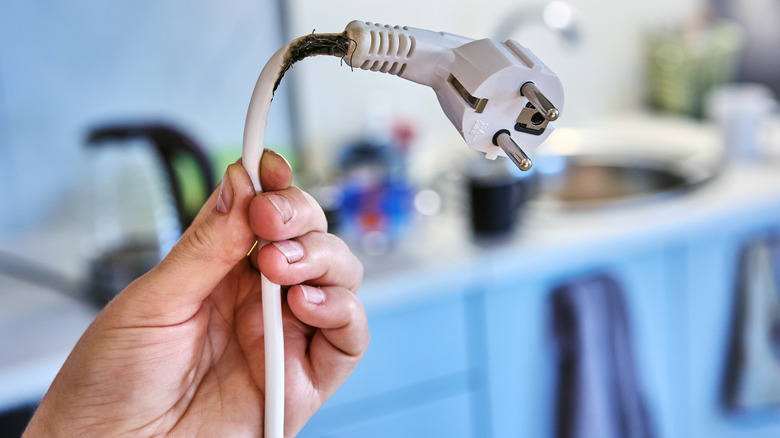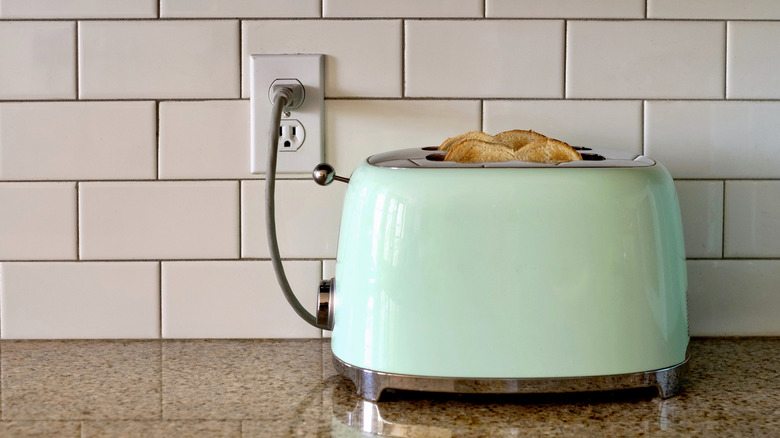The Kitchen Appliances You Should Absolutely Never Plug Into An Extension Cord
Kitchens come in all different shapes and sizes, and unfortunately, not all of them are the most accommodating to dedicated home cooks. They can sometimes be lacking outlets in areas like the best place for your microwave or just not have enough wall sockets in general. Some crafty folks might think they've found a solution by using extension cords to power their various appliances, but they are playing with fire ... literally.
The Takeout spoke with Dennis Godynuk, a licensed appliance expert with Comfort Appliance Repair in Nashville, Tennessee, and he was adamant that extension cords and kitchen appliances should never intertwine. "Do not use an extension cord on refrigerators, freezers, microwaves, toaster ovens, air fryers, dishwashers, disposals, or ranges and induction tops," he cautioned.
This might seem like common knowledge to some, just as most people know putting metal in the microwave is a recipe for disaster. Yet, it turns out plenty of folks aren't aware of the fire hazard associated with using anything other than a wall socket to plug in their appliances, or they simply ignore the danger. According to Electrical Safety Foundation International, improper use of extension cords contributes to around 3,300 fires in households annually, causing hundreds of injuries and taking dozens of lives.
Your average extension cord simply isn't designed to handle the wattage output of many kitchen appliances. "High current plus a long, thin cord means heat, voltage drop, and real fire risk," Godynuk said. Even a heavier-duty 14-gauge cord is only intended to carry 1,800 watts, maximum. The air fryer you use to make homemade potato chips can pump out up to 2,000 watts, making the risk of losing your home over a snack a serious concern if the appliance is plugged into an extension cord.
Extension cords can cause appliances to malfunction
It's not just the risk of an extension cord overheating and causing a fire when plugged into a kitchen appliance that is a concern (not that people should need any more reason than that). Dennis Godynuk said, "An undersized or coiled cord can overheat and starve the appliance." If, for example, you were to plug your refrigerator in using an extension cord, it might not provide enough energy to keep your groceries as cold as they need to be, resulting in food waste as your fridge tries to do its best with the power available.
Larger appliances aren't the only worry. Smaller units, such as stand mixers, utilize more wattage than you might assume. If you opt to plug them into an extension cord, you could get more than you bargained for when preparing your favorite goodies.
While it seems like a convenient option when outlets aren't where you would ideally want them to be, extension cords, with rare exceptions, really don't belong in the kitchen at all. Godynuk said, "Good rule: If it heats, cools, or has a compressor or pump, plug it straight into a proper outlet. These loads spike current." The best way to deal with inconvenient outlet placement is to dedicate an area of your kitchen with a wall plug as the spot where you'll use your countertop appliances — store them under the counter or in a pantry when they aren't needed.

